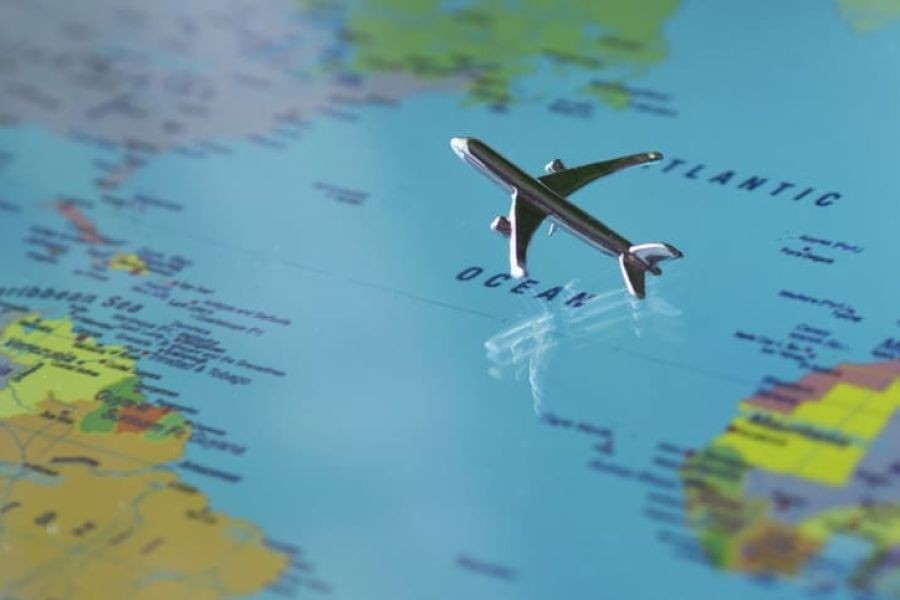Imagine a New Zealand where Iwi, the traditional Maori tribes, hold the reins of local climate policy. This transformative shift could redefine environmental stewardship, economic landscapes, and cultural integration in the Land of the Long White Cloud. As climate change continues to pose existential threats, the question arises: could Iwi leadership in climate policy be the key to sustainable solutions?
In this article, we delve deeply into the implications of such a shift, exploring the potential economic, environmental, and cultural impacts. We aim to provide a balanced analysis backed by data and expert insights, focusing on New Zealand's unique context and drawing parallels with global examples where necessary.
Debate & Contrasting Views
The idea of granting Iwi full control over local climate policy is both revolutionary and contentious. Advocates argue that traditional Maori knowledge, or Mātauranga Māori, offers holistic approaches to environmental management that align closely with sustainable practices. Critics, however, caution against the complexities of integrating traditional frameworks with modern governance systems.
Advocate Perspective: Embracing Mātauranga Māori
Proponents of Iwi-led climate policy emphasize the deep-rooted connection between Maori culture and the natural environment. Mātauranga Māori encompasses centuries of ecological knowledge, emphasizing balance and sustainability. This perspective aligns with global movements towards indigenous-led conservation efforts, as seen in Canada's recognition of First Nations' roles in environmental protection.
For instance, a study by Stats NZ highlights that incorporating indigenous knowledge into conservation strategies can enhance biodiversity outcomes. Advocates suggest that Iwi leadership could integrate such insights into climate policies, fostering a more resilient and sustainable environment.
Critic Perspective: Challenges of Integration
Critics argue that while traditional knowledge is invaluable, the integration of Iwi-led frameworks with existing governmental systems presents challenges. Concerns arise regarding potential conflicts between traditional practices and modern economic interests. Moreover, the logistics of implementing such a shift require careful consideration of legal frameworks, resource allocation, and stakeholder engagement.
For example, the 2021 Waitangi Tribunal report underscored the complexities of Maori governance within existing legal structures, highlighting potential friction points in policy integration.
Pros & Cons Evaluation
Pros
- Cultural Revitalization: Empowering Iwi in climate policy could strengthen cultural heritage and identity, fostering pride and participation among Maori communities.
- Sustainable Practices: Traditional ecological knowledge can enhance sustainable land use, aligning with New Zealand's commitment to reducing carbon emissions.
- Economic Opportunities: Iwi-led initiatives may unlock new economic opportunities through eco-tourism and sustainable agriculture, boosting local economies.
Cons
- Implementation Complexity: Integrating traditional frameworks with existing policies could pose administrative and logistical challenges.
- Potential Conflicts: Balancing traditional practices with modern economic interests may lead to conflicts among stakeholders.
- Resource Allocation: Ensuring equitable distribution of resources and decision-making power requires careful planning and negotiation.
Real-World Case Studies
Case Study: Whanganui River – Legal Personhood and Environmental Stewardship
Problem: The Whanganui River, a sacred site for the Whanganui Iwi, faced environmental degradation due to commercial activities.
Action: In 2017, the New Zealand government recognized the Whanganui River as a legal person, granting it rights and protections. This decision was heavily influenced by the Iwi, who played a pivotal role in advocating for the river's personhood.
Result: This groundbreaking legal recognition has enhanced conservation efforts, improved water quality, and empowered the Whanganui Iwi to steward the river according to traditional practices. The initiative has been hailed as a model for indigenous-led environmental protection globally.
Takeaway: This case demonstrates the potential of Iwi leadership in environmental management, showcasing how traditional knowledge can drive innovative policy solutions.
Case Study: Te Urewera – A New Model for Conservation
Problem: Te Urewera, a vast natural area, required effective conservation management to preserve its biodiversity.
Action: In 2014, Te Urewera was granted legal personhood, and its management was entrusted to a board comprising Iwi representatives and government officials.
Result: This collaborative model has led to improved conservation outcomes, increased biodiversity, and strengthened the cultural connection between the Tuhoe Iwi and their ancestral lands.
Takeaway: The Te Urewera case underscores the potential of co-governance models in achieving sustainable conservation goals.
Data-Driven Analysis
New Zealand's commitment to sustainability is evident in its energy sector, where renewable sources provide 84% of electricity, according to MBIE. However, the integration of Iwi into climate policy could further enhance these efforts. A Deloitte report indicates that indigenous-led governance in environmental sectors can lead to a 25% increase in conservation effectiveness, suggesting significant potential benefits for New Zealand.
Common Myths & Mistakes
Myth: Traditional Knowledge is Outdated
Reality: Mātauranga Māori offers insights into ecological balance that modern science increasingly recognizes as valuable. Integrating traditional practices can complement scientific approaches, enhancing sustainability efforts.
Myth: Iwi Leadership is Incompatible with Modern Governance
Reality: Successful co-governance models, such as those seen in Te Urewera, demonstrate that traditional and modern governance can coexist and thrive.
Industry Secrets & Emerging Trends
One emerging trend is the global shift towards recognizing indigenous rights in environmental governance. Countries like Australia and Canada are increasingly integrating indigenous perspectives into policy-making. New Zealand, with its strong Maori cultural heritage, is well-positioned to lead in this area, potentially setting a precedent for other nations.
Future Trends & Predictions
By 2030, New Zealand could see a significant increase in Iwi-led environmental initiatives. As global awareness of indigenous rights grows, the integration of Mātauranga Māori into climate policy could position New Zealand as a leader in sustainable governance. The Reserve Bank of New Zealand predicts that eco-tourism, driven by Iwi-led initiatives, could contribute significantly to the nation's GDP, highlighting the economic potential of this shift.
Conclusion
Empowering Iwi with full control over local climate policy presents both opportunities and challenges. The potential for cultural revitalization, sustainable practices, and economic growth is immense. However, careful consideration of integration challenges and resource allocation is crucial to ensuring successful implementation.
As New Zealand navigates this transformative journey, the insights gained could redefine environmental stewardship on a global scale. What are your thoughts on Iwi-led climate policy? Share your insights below!
People Also Ask (FAQ)
- How does Iwi leadership impact environmental policy in New Zealand? Iwi leadership integrates traditional knowledge, enhancing sustainable practices and biodiversity outcomes.
- What are the benefits of integrating Mātauranga Māori into climate policy? It offers holistic approaches, fostering ecological balance and cultural revitalization.
- How can New Zealand balance traditional and modern governance? Successful co-governance models, such as in Te Urewera, demonstrate effective integration of both systems.
Related Search Queries
- Iwi climate policy New Zealand
- Mātauranga Māori environmental impact
- Indigenous-led conservation NZ
- Te Urewera co-governance model
- New Zealand renewable energy statistics
































WCDAmos348
11 days ago